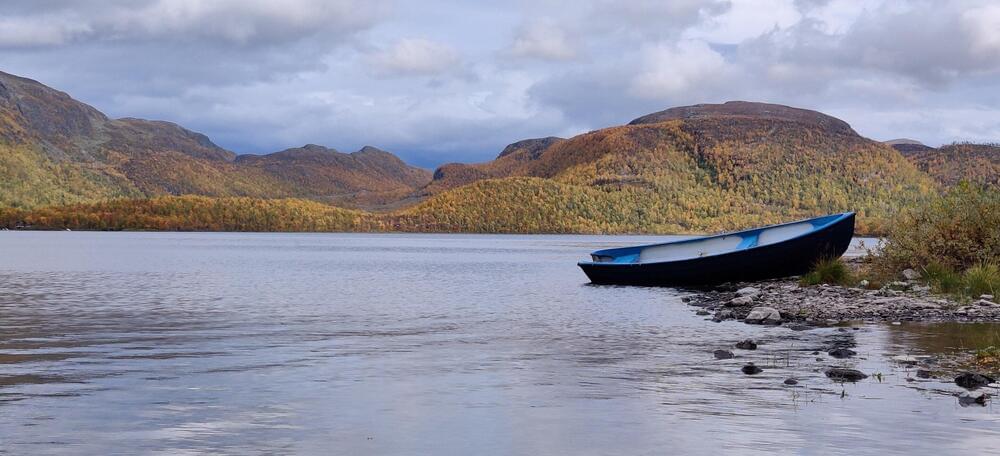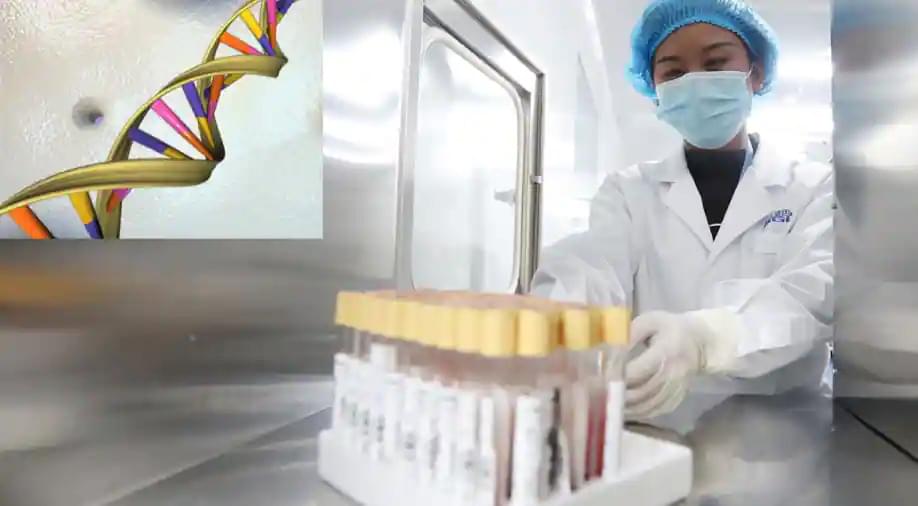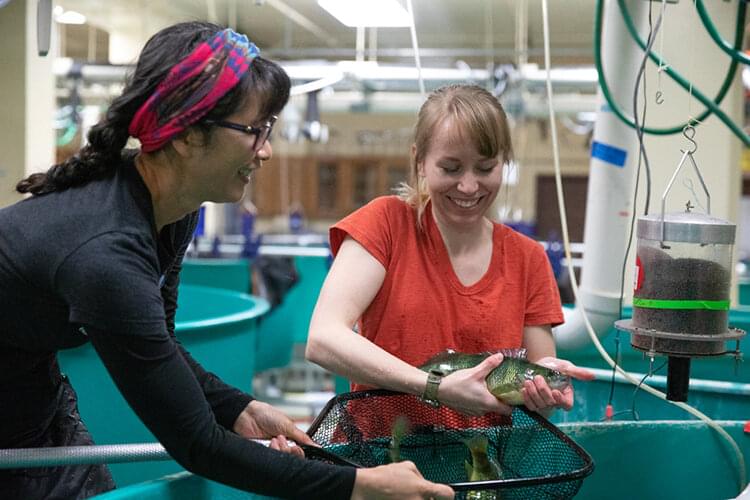To boost economic activity and food output, China’s ambitious project takes off and might take a decade or more to be completed.



A study of 29 European lakes has found that some naturally-occurring lake bacteria grow faster and more efficiently on the remains of plastic bags than on natural matter like leaves and twigs.
The bacteria break down the carbon compounds in plastic to use as food for their growth.
The scientists say that enriching waters with particular species of bacteria could be a natural way to remove plastic pollution from the environment.

Zero-emission buses will help cut emissions but we also need to redesign suburban networks to get people out of their cars, says University of Melbourne expert.
Meatable has become the latest company to reveal a new cultured food product – lab-grown sausages, which could offer a more sustainable and ethical choice for consumers in the near future.

A U.S. House Intelligence Committee member cautioned that bioweapons using a target’s DNA to kill only that individual are being created. US Representative Jason Crow of Colorado spoke on Friday at the Aspen Security Forum and cautioned Americans not to be too careless about sharing their DNA with private firms due to the impending arrival of the new type of weapon. “You can target a biological weapon that will kill that person or take them off the battlefield or make them inoperable,” Crow said. “You can take someone’s DNA, you know, take their medical profile,” he added.
Given the prevalence of DNA testing services, where customers voluntarily share their genetic mapping with companies to learn more about their ancestry and health, the congressman said it is concerning that these weapons are being developed. Although 23andMe has maintained time and time again that it does not sell its customers’ private information, it is one of many DNA companies that have done so when asked by the police.
As a member of the Senate Armed Services Committee, US Senator Joni Ernst of Iowa claimed that the US’s adversaries may deploy such DNA bioweapons to attack food supply on a large scale. Ernst forewarned that specific animals relied upon by civilians, armies, or towns could be the target of biological weapons, resulting in scarcity and food poverty and weakening populations.

Ask medieval historian Michael McCormick what year was the worst to be alive, and he’s got an answer: “536.” Not 1,349, when the Black Death wiped out half of Europe. Not 1918, when the flu killed 50 million to 100 million people, mostly young adults. But 536. In Europe, “It was the beginning of one of the worst periods to be alive, if not the worst year,” says McCormick, a historian and archaeologist who chairs the Harvard University Initiative for the Science of the Human Past.
A mysterious fog plunged Europe, the Middle East, and parts of Asia into darkness, day and night—for 18 months. “For the sun gave forth its light without brightness, like the moon, during the whole year,” wrote Byzantine historian Procopius. Temperatures in the summer of 536 fell 1.5°C to 2.5°C, initiating the coldest decade in the past 2,300 years. Snow fell that summer in China; crops failed; people starved. The Irish chronicles record “a failure of bread from the years 536–539.” Then, in 541, bubonic plague struck the Roman port of Pelusium, in Egypt. What came to be called the Plague of Justinian spread rapidly, wiping out one-third to one-half of the population of the eastern Roman Empire and hastening its collapse, McCormick says.
Historians have long known that the middle of the sixth century was a dark hour in what used to be called the Dark Ages, but the source of the mysterious clouds has long been a puzzle. Now, an ultraprecise analysis of ice from a Swiss glacier by a team led by McCormick and glaciologist Paul Mayewski at the Climate Change Institute of The University of Maine (UM) in Orono has fingered a culprit. At a workshop at Harvard this week, the team reported that a cataclysmic volcanic eruption in Iceland spewed ash across the Northern Hemisphere early in 536. Two other massive eruptions followed, in 540 and 547. The repeated blows, followed by plague, plunged Europe into economic stagnation that lasted until 640, when another signal in the ice—a spike in airborne lead—marks a resurgence of silver mining, as the team reports in this week.

Designed for precision agriculture and environmental management use cases, the P4 Multispectral drone combines data from six separate sensors to measure the health of crops. It can be used to monitor everything from individual plants to entire fields, as well as weeds, insects, and a variety of soil conditions.
The P4 Multispectral drone is compatible with standard industry workflows including flight programming, mapping, and analytics software from DJI and other leading providers. Using the DJI GS Pro application, you can create automated and repeatable missions including flight planning, mission execution, and flight data management. Data collected can be easily imported into DJI Terra or a suite of third-party software including Pix4D Mapper and DroneDeploy, for analysis and to generate additional vegetation index maps.
The drone was first announced in 2019.

A midst the hustle and bustle in one of Chennai’s busiest streets, Chrompet, 51-year-old S Sathyanarayanan has created a green paradise on his 1,200 sq ft terrace. He grows 400 plants including ornamental flowers such as moss roses, medicinal plants like moringa, fruits like figs, and vegetables like lady’s finger, potatoes and more.
However, what’s unique about Sathya’s garden is that he prepares a variety of liquid fertilizers using kitchen ingredients to nourish his plants. Further, he also prepares a mix of water, jaggery, and an organic Waste Decomposer (WDC) solution in a 250-litre drum. This is fed to all plants regularly, which ensures healthy and pest-free growth.
“I started terrace gardening in 2015 after my family and I moved into our newly constructed home here. Earlier, we were living on the ground floor of a rented home and I could not grow many plants, as the availability of space was an issue. I started my gardening journey with 50 pots of money plants, tulsi, tomatoes and others. Today, my garden has over 400 pots, which grow ornamental flowers, fruits, and vegetables,” says Sathya, adding that regular visitors to his garden include buzzing honey bees and chirping love birds.

When Dong-Fang Deng and her students make feed for the fish they raise at UWM’s School of Freshwater Sciences, they often use ground fishmeal—dried fish parts from fisheries or wild catch—as the protein source.
It’s possible to find microplastics in commercial fish food, she said, because the wild fish that end up in fishmeal consume some of the microplastics that litter the waters they live in. But after Deng actually spotted tiny plastic beads in pre-ground fishmeal, it prompted a question.
“We wondered, ” If the fish eat the microplastics, could the particles accumulate inside their bodies?’” said Deng, professor of freshwater sciences who researches the role of diet in fish farming, or aquaculture.